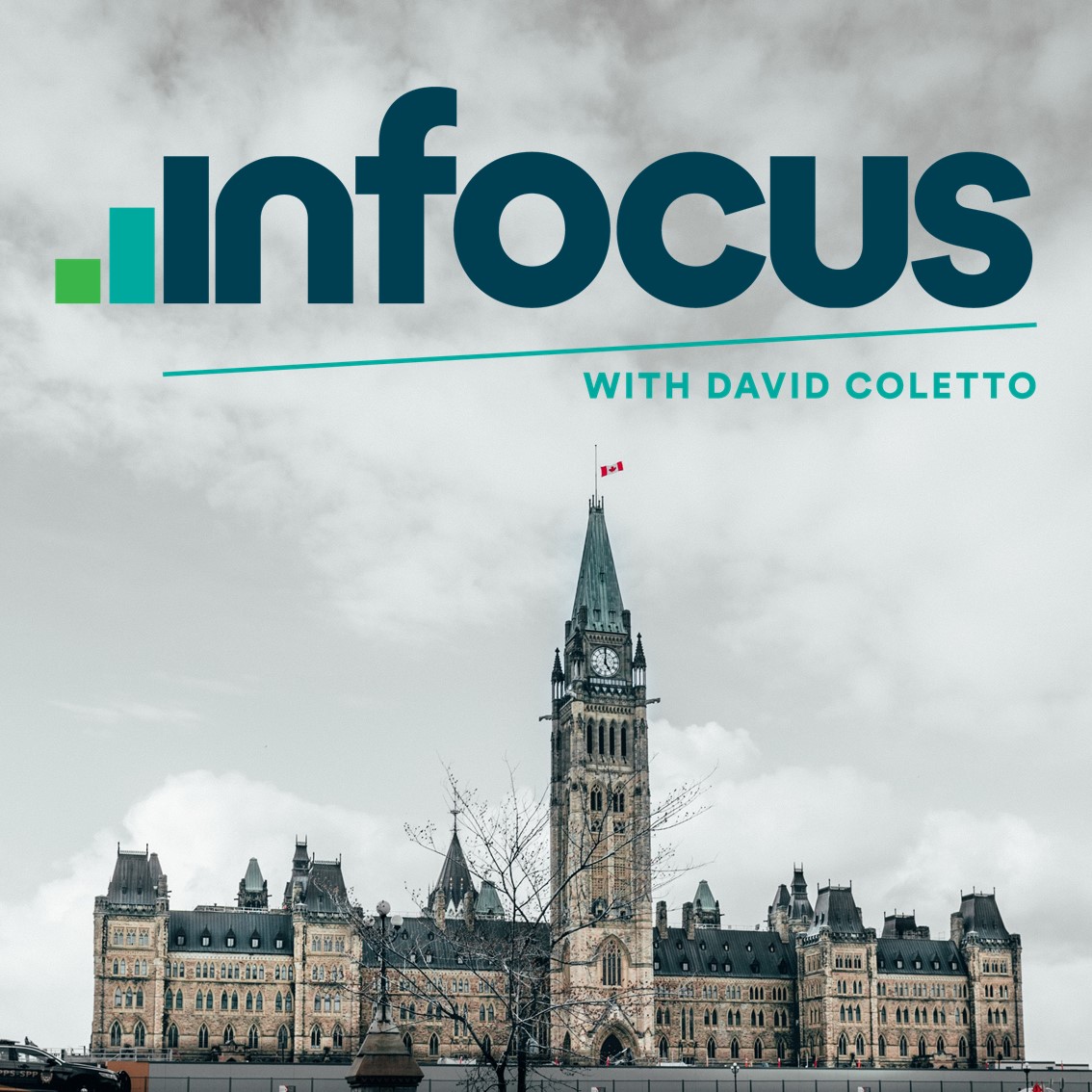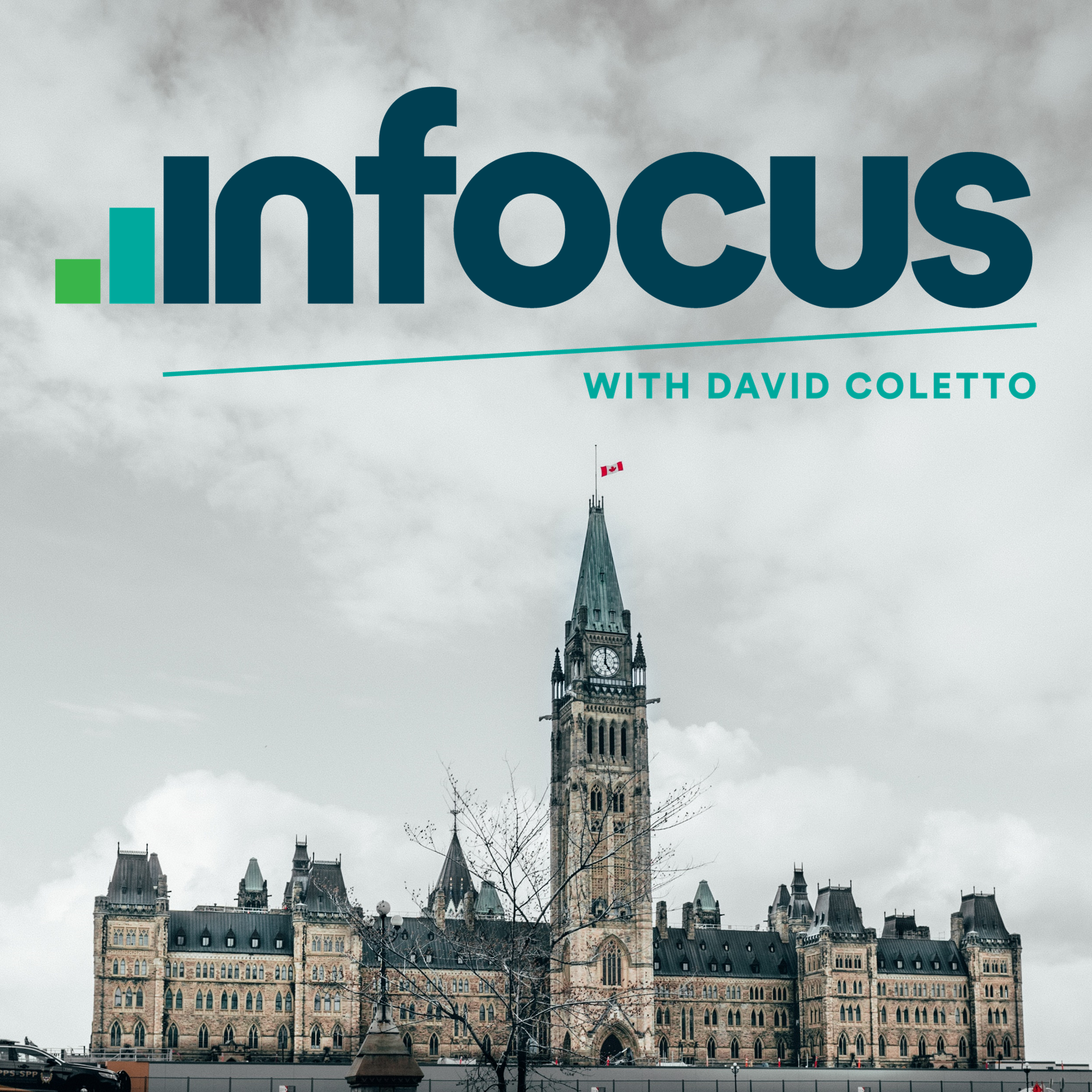Episode Transcript
[00:00:00] Foreign well, hey everyone. Welcome back to In Focus with David Coletto. I'm David Coletto. We're about halfway through the campaign and for the first time the numbers from ABACUS data are showing a decisive shift. A new poll we conducted between April 3rd and 8th with over 1900 Canadians finds the Liberals opening up a statistically significant 6 point lead over the Conservative. It's the first time in the campaign we've seen a clear Liberal advantage and it comes on the heels of Donald Trump's announcement of reciprocal tariffs on on goods and countries all over the world. So there's a lot to unpack. Let's get into it now. If the election were held today, the Liberals would take 42% of the vote. The Conservatives are behind by 6 at 36% with the NDP at 11 since our last poll. That's a three point gain for the Liberals and a three point drop for the Conservatives. That's a six point swing in just a week. And I think it's a confluence of Trump continued. Well, good performance by Mark Carney on the campaign and I think even.
[00:01:24] And we'll have some new polling on this later this week.
[00:01:28] The effects of the drop in gas prices thanks to the carbon tax taking effect on April 1.
[00:01:35] Among those most certain to vote, though, which tends to be the more accurate predictor of the actual outcome, the Liberal lead is slightly is basically the same, 43% to 37.
[00:01:47] This isn't just a statistical blip. I think it's a meaningful shift in momentum and it's showing up across multiple demographics and regions. Regionally, the Liberals now lead by 10 points in Ontario, by 19 in Quebec and by a massive 37 point margin in Atlantic Canada. In British Columbia, the Conservatives still hold a modest seven point lead. Alberta, not surprising, it remains a stronghold for the Conservatives, although we even see the Liberals gaining there. But the Liberal surge isn't just regional, it's demographic too. They now lead or are tied with the Conservatives across every age group. That includes a seven point lead among younger voters, a four point lead among those aged 30 to 44, a dead heat among those 45 to 59 and a striking 14 point lead among Canadians over 60. And when it comes to education, the divide is even greater. The Liberals lead by 17 points among university graduates, they're up three with college grads. And among those with high school or less, the Conservatives still lead, but only by three points. So who's in this coalition for the Liberal Party today? According to our data, 61% of those currently saying they're Going to vote. Liberal also voted for the party back in 2021. But here's what's fascinating. 20% of that new Liberal coalition didn't vote at all last time. And the remaining chunk is almost evenly split between former NDP and former Conservative voters. That tells us a few things. The Liberals have reassembled their 2021 base and grown it by activating non voters and pulling support from both ends of the political spectrum. Now that's a strong foundation headed into the final two weeks of the campaign.
[00:03:33] Now, beyond vote intention, we also ask Canadians who they think is going to win. And here again, the Liberals are gaining confidence. Right now, 47% of Canadians believe the Liberals will win the election. That's up 15 points since mid March. Only 30% think the Conservatives will win and just five say the NDP. And digging deeper, nearly half believe the Liberals will win outright. While another 31 say it will be close. Only 7% think the conservatives will win by a lot. This kind of expectation gap can be powerful. It shapes voter psychology, creates momentum and really can set the tone for the final weeks of this campaign.
[00:04:13] And what about the leaders? Mark Carney continues to strengthen his image. His net favorability score is now +19. That's 47% of Canadians saying they have a positive impression compared to 28 with a minus one. That's a five point improvement over the past week.
[00:04:29] Pierre Poliev's score sits at minus six. Now that's not disastrous, but certainly not great when they are trying to build momentum. On the preferred prime minister question, Carney leads Poliev by seven points. That's a widening gap, 41 to 34. He's ahead by double digits in Atlantic Canada and Quebec and holds an 8 point lead in Ontario. Even in BC we have him up by 6. So what's driving this shift? Well, I think it's a combination of a few factors, but two really stand out. First, Donald Trump continues to insert himself into this campaign. The announcement last week of reciprocal tariffs, which today he announced a pause. Although there's some confusion over whether now Canada has a 10% tariff or not. More to come on that in the future.
[00:05:15] While it's obviously an American policy decision, you know, it's obviously re injected economic uncertainty again into this Canadian election. And in that environment, Carney, who's branded himself as that steady economic manager, clearly benefits. He looks more competent, more reassuring and more prepared for the turbulence ahead. Second, the Conservatives have been on defense. The carbon price rollout in backstab provinces was supposed to be their wedge issue. But it hasn't reshaped the race. Instead, Carney seems to be benefiting. We asked Canadians, who do you think deserves most of the credit for the drop in gas prices this week? And most Canadians say Mark Carney, not Pierre Poliev. So with just under two weeks to go, there's still time for change. Cost of living remains top concern. Pierre Poliev's core message is still potent. But if Trump's tariffs continue dominating headlines, or if Marc Carney's momentum keeps building, that path to victory for the Conservatives continues to become more narrow as the days go on.
[00:06:26] So that's where we are. The Liberals have the upper hand. They've rebuilt and expanded their coalition, and their leader is rising in favorability. We'll see if that holds, and we'll continue to do research over the next few weeks. That's it for this episode of In Focus with David Coletto. If you enjoyed this podcast, please subscribe, Share Rate us. It does help a lot to get this in front of more people. And if you want to know more data, visit our website abacusdata ca. Follow me on Twitter at davidcolletto or visit my substack davidcolletto substack.com for more analysis, data and insights. Thanks for listening. Talk to you next time.
[00:07:07] Sa.


